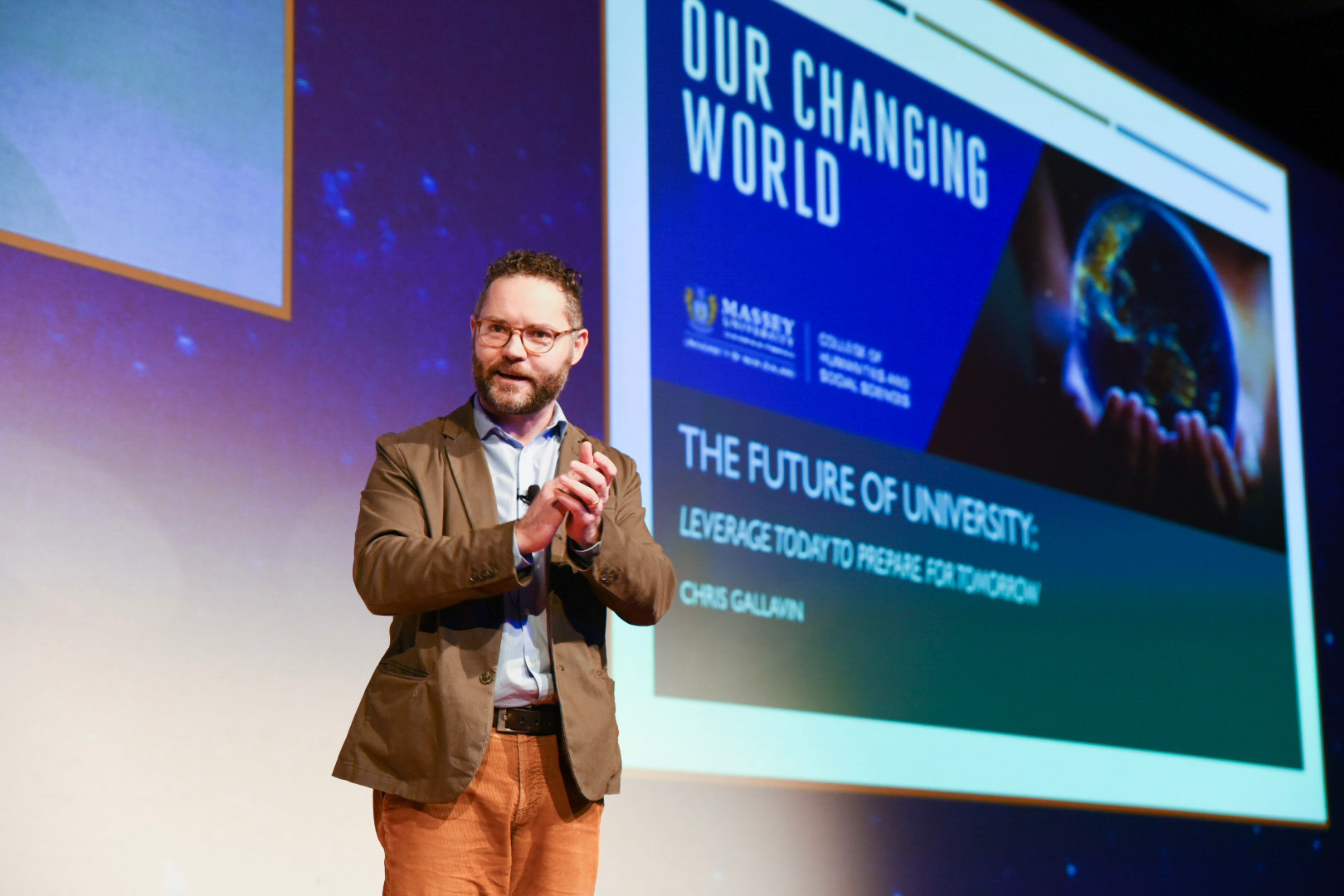22 August 2019 at 9:00 am
Keynote speakers pose challenges
Guy Ryan, Dr Lisa Coleman and Professor Chris Gallavin explored ideas around the conference theme ‘Navigating our changing world’. Their presentations were designed to provoke thought and discussion among conference delegates, across all sectors of education.

Unconscious bias, new models of collaboration and poetry readings in fish and chip shops are just some of the subjects examined by NZIEC’s three dynamic keynote speakers.
Guy Ryan
Imagine if every New Zealander unleashed their potential to change the world.
That’s the bold vision of Guy Ryan, founder and CEO of the charity Inspiring Stories.
Guy called on the audience to reimagine education by:
- Discovering new models of learning and collaboration.
- Creating powerful experiences and building degrees and qualifications around them.
- Harnessing technology and having content delivered by world-class people here and overseas.
- Fostering connectivity and partnerships, and thinking more about global opportunities.
New Zealand is capable of meeting challenges, says Guy, because we are “the tiny nation that can”.
Dr Lisa Coleman
Dr Coleman is Senior Vice President for Global Inclusion and Strategic Innovation and Chief Diversity Officer of New York University.
She challenged the audience’s thinking with questions such as:
- How are Millennials and Generation Z students asking us to think differently about inclusion, diversity and belonging?
- How might unconscious bias manifest itself the same or differently in individuals and organisations? (Take a test to determine your individual unconscious bias at Project Implicit)
- When trying to change an organisation on an issue such as diversity, people at the top and the bottom are often supportive but messages may get lost in the middle. How do we engage the “messy middle”?
- How we do ensure both partners in global partnerships are on an equal footing, rather than having one leading the other?
Professor Chris Gallavin
Soon to embark on a poetry tour of the nation’s fish and chip shops, Professor Chris Gallavin is both a poet and Deputy Pro Vice-Chancellor of the College of Humanities and Social Sciences at Massey University.
He told the audience that education should not be about passing on information, but about “learning how to do things with the stuff we know”.
Professor Gallavin called for a more collaborative future, with education providers engaging with industry, politics and broader society to help solve the world’s problems.
“The revolution is coming, whether we like it or not, and it will be driven by young people,” he says.
“Universities need to change our view of how we see ourselves in the world, from bastions of knowledge to centres of collaboration.”

